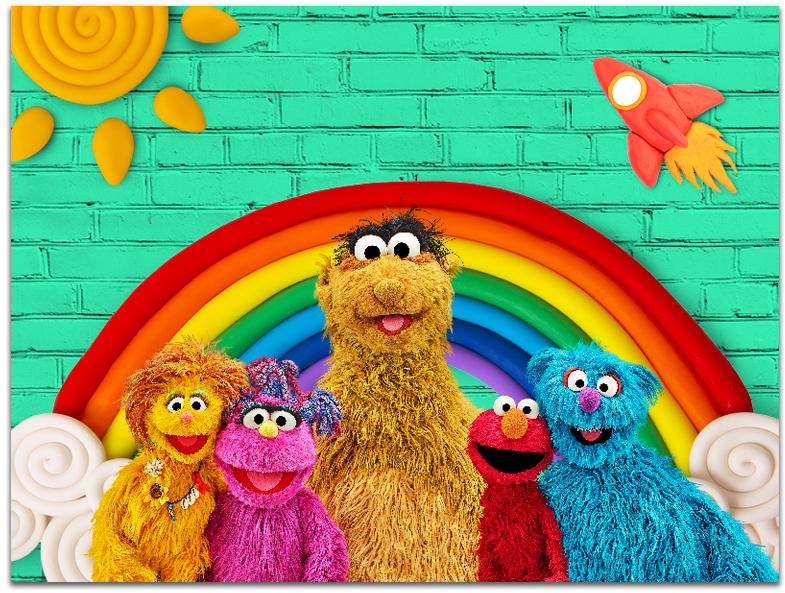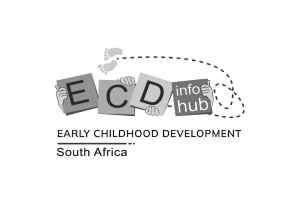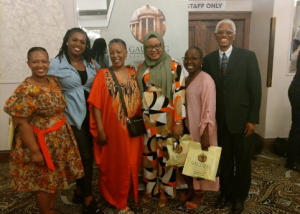Introduction
In the Global South the month of December is often described as the final stretch to breaking that life race ribbon, taking a deep breath but finally a well-earned rest, relaxation and bonding with family, friends and community. Finally, also a time to bond with our children through play (#Bondthroughplay,2024)[1]. In the global South, but particularly in South Africa we are also blessed with glorious summer days, sunshine and long cool evenings – ideal to play outdoors. Outdoor play is a cornerstone of childhood, offering an array of benefits that extend beyond the realm of physical activity. By embracing the great outdoors, parents and young children can unlock a world of opportunities that foster emotional, social, and cognitive development.
The connection between play and culture has an illustrious past (Holmes, 2011). The classic play theorist, Garvey (1990) tells us that:
“Play is not just a past time activity, but a useful cultural tool that satisfies certain needs and purposes of adults, adolescents, children…”
Some of these cultural tools includes games, stories, songs and dances (Wanderi, 2001 and 2011, Kenyatta, 2004). These cultural tools are considered crucial as they teach, bear meaning and understanding within African cultural context and project the identity of the people. It is essential for parents and caregivers to journey down memory lane, reminiscing and sharing with our children the games that brought us immense joy in our youth. December’s downtime presents the perfect opportunity for this delightful endeavour!
Numerous studies have highlighted the profound impact of outdoor play on children’s well-being. (Clements, 2004) Through unstructured, nature-based play, children have the chance to engage in a variety of behaviours that aid in navigating their socio-cultural environments in safe simulations. The natural outdoor environment, with its open fields, hills, trees, vegetation, encourages physical activity, imagination, expression, and exploration, all of which have a beneficial impact on children’s social skills, mental well-being, and cognitive outcomes. (Traynor et al., 2022).
Growing stronger, smarter and kinder: The essential role of outdoor play in child development.
Let’s explore the benefits of outdoor play and practical examples to encourages the healthy and holistic wellbeing of our young children together.
Sunshine:
Research suggests that prolonged exposure to natural outdoor lighting may have a positive influence on children’s behavioural and cognitive development. Exposure to sunlight also helps our bodies produce vitamin D, which is crucial for bone development, immune system function, and overall mood.
Practical examples of activities.
Play activities like catch, diski, follow-the leader, skipping rope, frisbee, can help children get plenty of sunlight, which is essential for vitamin D production. Please do remember hats and sunscreen!
Exercise
Outdoor play encourages physical activity, which is essential for maintaining a healthy weight, building strong bones and muscles, and improving cardiovascular health. Exercise is beneficial for children in many ways. It improves academic performance, brain health, muscular fitness, heart and lung health, cardiometabolic health, long-term health, bone strength, and helps maintain a healthy weight. Regular physical activity also enhances cognitive function, academic performance, social skills, and emotional well-being. It can help children feel less stressed, feel better about themselves, and be more ready to learn in school.
Practical examples of activities
Riding bikes, going for lazy walks, and playing tag are great ways to encourage physical activity, helping to build strong bones and muscles.
Mental Health:
The benefits of outdoor play extend beyond the child, as parents and caregivers can also reap the rewards of this enriching activity. By encouraging our children to explore the outdoors, we can foster a deeper appreciation for the natural world, instil a sense of adventure, and promote healthy physical and emotional development.
Time spent outdoors can lead to better mental health, improved sleep, and cognitive, social, and emotional gains.
Practical examples of activities.
Nature walks, gardening, or simply spending time in a quiet outdoor space can improve mental health, enhance mood, and promote better sleep[i].
Taking Risks:
One of the most significant advantages of outdoor play is the opportunity for children to engage in risk-taking behaviours. While this may initially seem concerning, it is through these calculated risks that children learn to navigate uncertainty, develop resilience, and build essential life skills, like building confidence and learning to face life’s challenges.
Practical examples of activities
Climbing trees, balancing on logs, or exploring new community playground equipment can help children build confidence and learn to navigate risks.
Socialisation:
Moreover, outdoor play provides a platform for children to engage in imaginative and social play, which are crucial for the development of social competence, problem-solving, and creative thinking. By allowing our children to freely choose their activities and interactions, we can empower them to take initiative, develop hobbies, and increase their preference for physical activity. Outdoor play provides opportunities for children to interact with others, learn to share, cooperate, and develop social skills.
Practical examples of activities
Group games like hide and seek, relay races, or team sports can provide opportunities for children to interact, share, and cooperate with others.
Call to Action
As parents and caregivers, it is our responsibility to ensure that children have ample opportunities to experience the joys and benefits of outdoor play. Let’s make this December a time of bonding, learning, and growing smarter, stronger and kinder together!
About Takalani Sesame:
Takalani Sesame is the ground-breaking South African children’s programme that has educated and entertained children for more than 23 years. Takalani Sesame was named the Best Children’s Programme at the South African Film and Television Awards (SAFTA) in 2021 and received another nomination for the 2023 SAFTAs. Takalani Sesame promotes early childhood education while supporting South Africa’s mother-tongue based education policy with television, radio, digital content, and community and classroom engagement.
For more information about Takalani Sesame and their Bond Through Play Campaign, Please visit their website at https://takalanisesame.org.za/
References
Clements, R. (2004). An Investigation of the Status of Outdoor Play. In R. Clements, Contemporary Issues in Early Childhood (Vol. 5, Issue 1, p. 68). SAGE Publishing. https://doi.org/10.2304/ciec.2004.5.1.10
Garvey, C. (1990). Play. Cambridge, MA; Harvard University Press.
Holmes, R. (2011). Adult caregiver attitudes and beliefs regarding play in Lana’i. American Journal of Play, 3, 424-452.
Kenyatta, J. (2004). Facing Mount Kenya: The traditional life of the Gikuyu (14th Ed.). Nairobi: Kenway Publication
Traynor, O., McCrorie, P., Chng, N. R., & Martin, A. (2022). Evaluating Outdoor Nature-Based Early Learning and Childcare Provision for Children Aged 3 Years: Protocol of a Feasibility and Pilot Quasi-Experimental Design. In O. Traynor, P. McCrorie, N. R Chng, & A. Martin, International Journal of Environmental Research and Public Health (Vol. 19, Issue 12, p. 7461). Multidisciplinary Digital Publishing Institute. https://doi.org/10.3390/ijerph19127461
Wanderi, P.M. (2009). Traditional games in Africa: East and Central Africa. In L.O. Amusa & Toriola, A.L. (Eds.), Traditional and indigenous games and sports in Africa (pp.1-7). South Africa: WWW Publishing (pty) Ltd.
[1] Please do follow the Takalani Sesame Social media campaign #Bondthroughplay on our Social Media platforms. visit www.sesameworkshop.org. You can also follow the Sesame Workshop on Facebook (https://www.facebook.com/takalani.sesame.edu), Youtube (https://www.youtube.com/channel/UCSOzE3-7BQn7GtiftoiIRsg ), X (https://x.com/SesameWorkshop?ref_src=twsrc%5Egoogle%7Ctwcamp%5Eserp%7Ctwgr%5Eauthor ).





